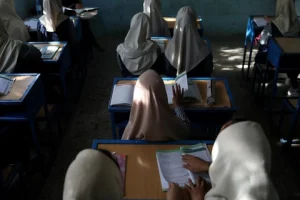Afghanistan’s economy could contract 30 per cent this year, the International Monetary Fund has said in a report. This could lead to a refugee crisis impacting its neighbouring countries.
According to a Reuters report, with non-humanitarian aid halted and foreign assets largely frozen after the Taliban seized power in August, Afghanistan’s aid-reliant economy currently faces multiple challenges.
For a country, where grants have financed around 75 per cent of the public spending, choking of aid would lead to crumbling of the economy. The US has frozen the $9.5 billion reserves that the country has in overseas accounts. Besides, flow of remittances has choked too.
Also read: Khalilzad steps down as flawed Afghan trouble-shooter with a troubled legacy
The IMF also said that the uncertainty in Afghanistan would result in economic and security spillovers to the region and beyond.
"A large influx of refugees could put a burden on public resources in refugee-hosting countries, fuel labor market pressures, and lead to social tensions, underscoring the need for assistance from the international community," the IMF said in the report.
Just after the Taliban took over Kabul, Afghanistan’s former acting Central Bank governor Ajmal Ahmady said in a tweet, “Taliban won militarily – but now have to govern. It is not easy.”
However, unlike 2015 during the Syrian conflict, several countries in Europe and elsewhere this time showed their reluctance to provide asylum to refugees fleeing Afghanistan.




















